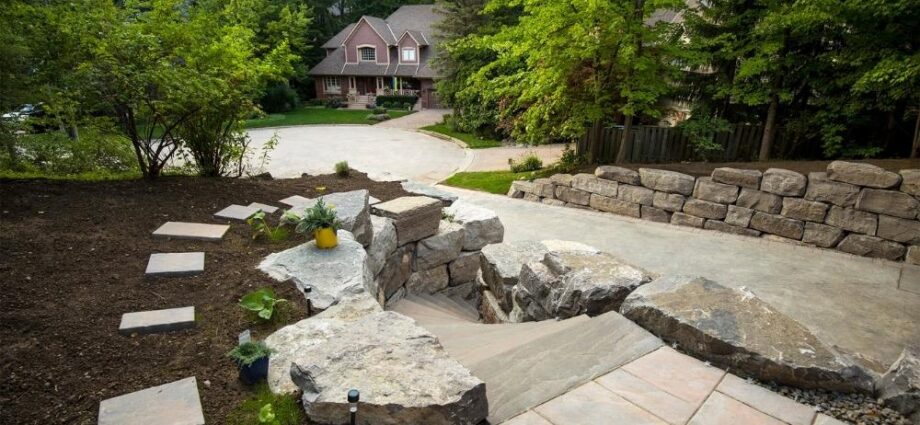Landscaping design and construction are essential elements in transforming outdoor spaces into beautiful and functional environments. Whether you’re looking to enhance your home’s curb appeal, create a tranquil garden retreat, or establish an inviting outdoor living area, professional landscaping services can turn your vision into reality. In this comprehensive guide, we’ll explore the importance of landscaping design and construction, discuss key considerations for planning your project, and provide insights into finding the right professionals to meet your landscaping needs.
The Significance of Landscaping Design and Construction:
Landscaping design and construction encompass a wide range of services aimed at beautifying and enhancing outdoor spaces. These services play a crucial role in:
- Enhancing Curb Appeal: Well-designed landscaping can significantly enhance the curb appeal of your property, making a positive first impression on visitors and potential buyers. Thoughtfully planned landscaping features such as lush gardens, manicured lawns, and inviting pathways can elevate the overall aesthetic of your home.
- Creating Functional Outdoor Spaces: Landscaping design considers both aesthetics and functionality, creating outdoor spaces that are practical and enjoyable to use. Whether it’s a cozy patio for entertaining, a tranquil garden for relaxation, or a play area for children, well-designed landscaping maximizes the usability of your outdoor space.
- Increasing Property Value: Professionally designed and executed landscaping projects have been shown to increase property values. A well-maintained landscape can attract potential buyers and command higher selling prices, offering a significant return on investment.
- Providing Environmental Benefits: Thoughtful landscaping design can provide numerous environmental benefits, such as reducing soil erosion, improving air quality, and providing habitat for wildlife. Sustainable landscaping practices, such as water-efficient irrigation and native plantings, help conserve resources and minimize environmental impact.
Key Considerations for Planning Your Landscaping Project:
When planning your landscaping project, consider the following key factors to ensure success:
- Define Your Goals: Begin by clearly defining your landscaping goals and priorities. Determine the primary functions you want your outdoor space to serve, such as entertaining, relaxation, or gardening, and identify any specific features or elements you’d like to incorporate.
- Assess Your Site: Evaluate your property’s existing features, including topography, soil conditions, sunlight exposure, and drainage patterns. Understanding your site’s characteristics will help inform design decisions and ensure the suitability of chosen landscaping elements.
- Set a Realistic Budget: Establish a realistic budget for your landscaping project, taking into account both design and construction costs. Consider prioritizing essential features and phasing out additional elements to align with your budgetary constraints.
- Research Design Styles: Explore different landscaping design styles and themes to find inspiration for your project. Whether you prefer a formal, symmetrical layout or a more naturalistic, informal design, there are countless design options to suit your taste and preferences.
- Hire Qualified Professionals: Enlist the expertise of qualified landscaping professionals to bring your vision to life. From landscape architects and designers to skilled construction crews and maintenance specialists, hiring the right team ensures a successful outcome for your project.
Finding the Right Professionals to Meet Your Landscaping Needs:
When selecting professionals for your landscaping project, consider the following factors to ensure you choose the right team:
- Experience and Expertise: Look for landscaping professionals with extensive experience and expertise in designing and constructing outdoor spaces. Review portfolios of past projects to assess the quality of their work and ensure it aligns with your vision.
- Licensing and Certification: Verify that the professionals you’re considering are properly licensed, certified, and insured to perform landscaping services in your area. This ensures they meet industry standards and adhere to local regulations and building codes.
- Reputation and References: Research the reputation of landscaping professionals by reading online reviews, testimonials, and references from past clients. A reputable landscaping company will have a track record of satisfied customers and positive feedback.
- Communication and Collaboration: Choose professionals who communicate effectively and collaborate closely with you throughout the design and construction process. Clear communication ensures that your vision is understood and realized, resulting in a successful outcome for your project.
Landscaping design and construction are essential components in creating stunning outdoor spaces that enhance the beauty, functionality, and value of your property. By carefully planning your project, defining your goals, and enlisting the expertise of qualified professionals, you can transform your outdoor space into a welcoming oasis that reflects your lifestyle and enhances your enjoyment of your home. So, whether you’re dreaming of a lush garden retreat, a stylish patio oasis, or a serene outdoor living area, trust in the expertise of landscaping professionals to bring your vision to life with creativity, craftsmanship, and attention to detail.

